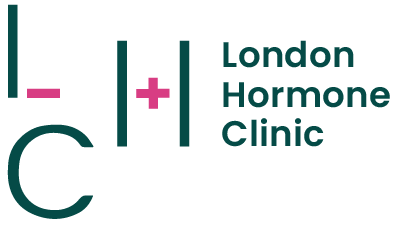Menopause: Separating Fact from Fiction.
Over the past few years menopause has been thrust into the spotlight by a group of influencers, celebrities, and women’s health experts. Their mission: to empower all women with the facts about this life-changing experience. Change is coming, but there is still a great deal of mistrust and misinformation out there. Here we set out to change that by separating fact from fiction…
Menopause is not something to be ashamed of. Fact.
It wasn’t that long ago that no one talked about what they termed, ‘the change’. Remember your grannie or even your mum taking you through her night sweats and weight gain? Probably not. In all likelihood you don’t even know the age your mum stopped having periods – unless of course you’ve asked. And that’s because until very recently women remained silent about this ‘thing’ that was happening to each and every one of them. This completely natural, and very normal life event.
Why? Well, that’s a very good question. The answer: stigma and shame. The root of which lies in the fact that historically menopause wasn’t a problem as average life expectancy back in 1895 was just forty-three years. Our ovaries are built to last that long, but not much more. Thankfully, life expectancy has doubled since the start of the Victorian era, the longevity of one of our reproductive organs has not.
We can’t lay the blame entirely at the feet of our ancestors though; our reluctance to talk about the menopause and share our experience goes much deeper than that. Experts in women’s health blame the toxic combination of ageism and society’s insistence on labelling menopause a ‘disease’ or ‘cruel joke’.
Thankfully, times are changing and a whole brigade of celebrities, influencers, and menopause experts are on a mission to empower women with knowledge in a bid to encourage them to open up about what they are going through. And whilst the government has rejected a trial of menopause leave in the UK’s workplaces, they have taken steps to improve employers’ understanding and support.
Ultimately though, the buck stops with all of us, so talk to your mum, aunt, and sister; confide in your friends and colleagues and don’t, whatever you do, suffer in silence. In this day and age, there really is no need for that.
HRT does not cause cancer. Fact.
2002 was the year that everything changed for menopause treatment and the huge strides forward took a great leap back. A massive American study into hormone replacement therapy claimed there was an increased risk of breast cancer, heart attacks, and strokes for women taking this medication. Not surprisingly, this made headlines around the world and saw the number of women on HRT plummet.
The reality was - and still is – very different. You see this study was trying to work out whether HRT could be used to maintain heart health in women who only started taking it after the menopause and, for this very reason, the average age of women taking part in this study was sixty-three. One in four of them were over seventy.
Closer analysis of the data also showed that the risk of the women in this study developing breast cancer from using HRT was only slightly higher than if they drank one glass of wine a night and lower than if they drank two glasses of wine a night.
What’s more, if you look at the younger women in this study – those aged between fifty and fifty-nine, there were clear benefits of using HRT. These women had fewer cancers, fractures, and deaths from any cause than the women taking the placebo.
And that’s not all. Since 2002 there have been countless studies into the safety of HRT, and all have concluded that when women use oestrogen only (in any form) there is no increased risk of any disease. Add in synthetic progestogen and there are complications.
That’s why we never prescribe synthetic progestogen as a first line treatment for HRT. And why the British Menopause Society’s guidelines recommend body/bio-identical progesterone instead.
So, problem solved? It should be as we know that real progesterone cannot increase the risk of cancers or strokes.
Even doctors don’t know all they should about menopause. Fact.
“My doctor doesn’t understand me…” “I was sent away with antidepressants, but I don’t want to take them…” “I was told I’m perimenopausal… but I’m not.” “My GP refused to give me HRT, suggesting therapy instead…”
Just some of the many stories told – on repeat – by women who have tried to find solutions to their menopausal symptoms - and failed. Sadly, even though women have become more enlightened over the past few years, when it comes to the HRT prescribing culture, much needs to change. Alarmingly, even though we are now twenty-one years on from THAT Women’s Health Initiative study, the one that changed everything, there is still a generation of GPs, endocrinologists, and even gynaecologists who are still too scared to prescribe HRT. It is not a cost issue either as hormonal medications are actually, in the grand scheme of things, and when you look at the long-term health benefits of taking them, exceptionally cheap.
Experts in hormonal medicine are growing increasingly frustrated by the lack of education in primary health care, with many women either being turned away, or offered antidepressants and sleeping tablets which, in many cases, make their symptoms worse. They know it really shouldn’t be this way when the solution is simple and cost-effective.
Of course, there are GPs and healthcare trusts who are investing in menopause training and even specialising in this area, but it is a postcode lottery. And for women turned away by their GP, there really is nowhere to go. It seems it’s down to women to not take ‘NO’ for an answer and to keep on fighting to be heard and not just seen by their GP.

